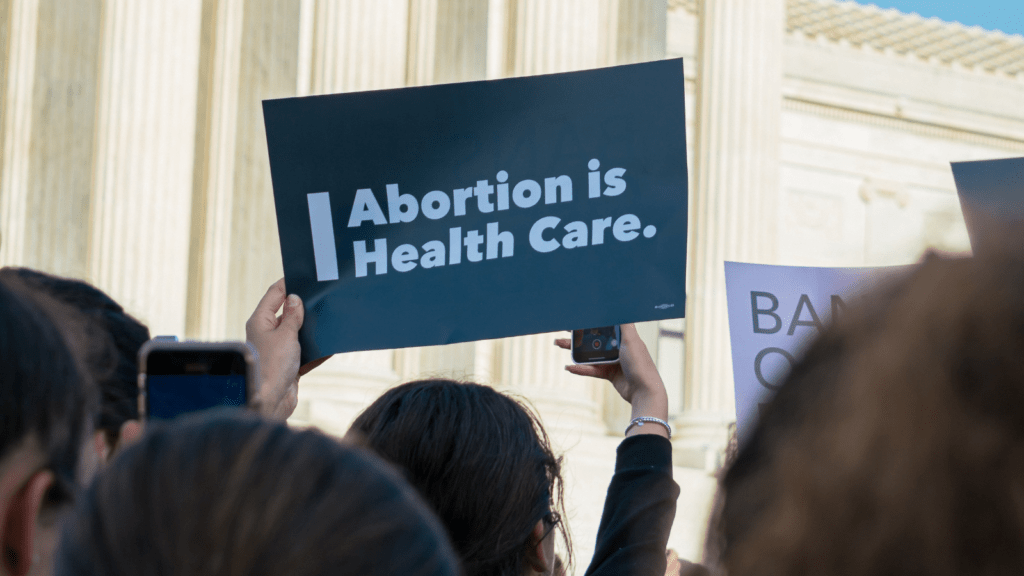Supreme Court Overturns Roe v. Wade
The Supreme Court decision invalidates nearly 50 years of precedent and eliminates the federal constitutional right to abortion. Learn what this means for access to essential reproductive health care across the country.

On June 24, 2022, the Supreme Court voted 6-3 in the case of Dobbs v. Jackson Women’s Health, an appeal of a lower court ruling that struck down as unconstitutional Mississippi’s law banning abortion after 15 weeks of pregnancy. In this decision, the court overturned Roe v. Wade and Planned Parenthood v. Casey and thus ended the federal right to abortion.
This decision does not mean an end to abortion. It does mean the end of safe, legal access to abortion for millions across the country.
The Supreme Court decision allows states to regulate access to abortion. As a result, in about half of all states, abortion access will be eliminated by total bans or curtailed by restrictions. In thirteen states that have passed “trigger laws,” near-total abortion bans will take effect immediately or within weeks of the Supreme Court decision. In seven of these states, there is no exception made in cases of rape or incest.
Abortion is health care. Decisions about abortion should be made by the pregnant person and their healthcare provider. This decision is a devastating one that strips millions of bodily autonomy and threatens clinicians who provide care. It will do demonstrable harm by limiting access to safe reproductive healthcare. And this harm will not be borne equally by all, with some communities (Black, Indigenous, and other people of color, people with low incomes, those living in rural areas, LGBTQ+) disproportionately affected.
And while the impact of this decision on abortion access is damaging enough, the ruling may put other rights at risk. In his concurring opinion, Justice Clarence Thomas wrote that the court “should reconsider all of this Court’s substantive due process precedents, including Griswold, Lawrence, and Obergefell”—three decisions that protect access to contraception, LGBTQ+ rights, and marriage equality.
"Whatever the exact scope of the coming laws, one result of today’s decision is certain: the curtailment of women’s rights, and of their status as free and equal citizens...Today’s decision strips women of agency over what even the majority agrees is a contested and contestable moral issue. It forces her to carry out the State’s will, whatever the circumstances and whatever the harm it will wreak on her and her family."
—Justice Stephen Breyer, in the dissent to the decision
While abortion is, or will soon be, illegal in many states, it not illegal nationwide. There are still many states in which abortion is, and will remain, legal. Below are resources that offer more information about the current status of safe, legal abortion access, as well as additional information about the implications of the Supreme Court decision.
Abortion Access
- Abortion Finder
The most comprehensive directory of trusted (and verified) abortion service providers in the United States. The state-by-state guide offers additional information about the status of abortion access in each state. - Planned Parenthood
Information on local Planned Parenthood clinics.
Self-Managed Abortion Resources
- Abortion on Our Own Terms
Information and resources on self-managed abortion. - Plan C
Up-to-date information on how people in the U.S. are accessing at-home abortion pill options online. - M+A Hotline
Expert advice from clinicians by phone or text and on self-managing miscarriage or abortion. - Aid Access
Aid Access consists of a team committed team of doctors, activists and advocates for abortion rights that assist with access to medication for at at-home abortion.
Abortion Support
- INeedAnA.com
Resources for financial, travel, and emotional support for people seeking an abortion. - National Network of Abortion Funds
Grassroots network building power to remove financial, logistical, cultural & political barriers to abortion. - Digital Defense Fund
Information and tips about digital security and abortion to help keep your abortion private and secure.
Legal Assistance
- If/When/How
Offers a free, confidential helpline where you can get legal information or advice about self-managed abortion, young people’s access to abortion or judicial bypass, and referrals to local resources.
To Learn More
- Roe v. Wade Overturned: Our Latest Resources
Data and analysis from experts at the Guttmacher Institute - ReproductiveRights.gov
From the U.S. Department of Health and Human Services (HHS)—accurate and up-to-date information about access to and coverage of reproductive health care and resources. - Thomas calls for overturning precedents on contraceptives, LGBTQ rights
In his opinion, Justice Clarence Thomas calls into question three Supreme Court decisions (Griswold, Lawrence, and Obergefell) that protect access to contraception, LGBTQ+ rights, and marriage equality. - Even More Than Abortion: The Constitutional Importance of Roe v Wade and the Right to Privacy
From the National Women’s Law Center - How period tracking apps and data privacy fit into a post-Roe v. Wade climate
From NPR—In the wake of the Supreme Court’s decision Friday to overturn Roe v. Wade, privacy experts are increasingly concerned about how data collected from period-tracking apps, among other applications, could potentially be used to penalize anyone seeking or considering an abortion.